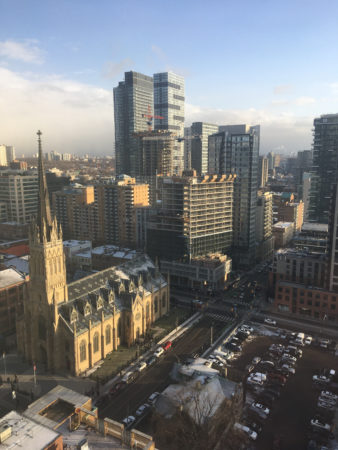There are several reasons to conclude that the world today is experiencing a nuclear arms race alongside conventional military buildup by many actors and a breakdown of multilateral cooperation.
Partly driven by US ballistic missile defence development, Russia began deploying weapon systems meant to counter them like the Topol-M in the 1990s. Now they are talking about hypersonic weapons and underwater cruise missiles.
China’s nuclear arsenal is developing, including through a rapidly enlarging submarine fleet with the resulting ability to carry out very rapid sub-to-shore SLBM strikes as well as less vulnerability to having land-based weapons and command systems destroyed.
India and Pakistan are also developing their nuclear capabilities, which may be the most threatening in the world because of the short flight times between the countries. Fear that a preemptive strike may destroy their ability to retaliate may be driving both countries to adopt dangerous policies to launch on what they perceive to be an attack and to delegate authority to use nuclear weapons to field commanders.
In the broadest terms, the US development of nuclear weapons in WWII encouraged Soviet weapon development (partly through extensive espionage in the US program) as well as British nuclear weapons after the US cut off cooperation. UK-French rivalry, national prestige, and skepticism about US protection helped motivate the French arsenal and their first test in 1960. Fear of Russia and the US led to Chinese nuclear weapons after 1964, and fear of the Chinese arsenal helped drive India to develop nuclear weapons and test one in 1974. Fear of India led to the current Pakistani arsenal and their test in 1998. North Korean nuclear weapons are partly consequences of fear of the United States, and also the hope they will bolster regime legitimacy and survival. The Israeli arsenal isn’t known to have been tested, and may have been motivated more by fear of being overwhelmed by conventional forces from hostile neighbours than specifically from fear of someone else’s nuclear weapons.
Despite being bound by the Nuclear Non-Proliferation Treaty not to do so, all of the long-established nuclear powers have been tempted by geopolitics or profits to share technologies and expertise that helped later nuclear weapon states.
There is now a credible fear that regional nuclear arms races could break out in the Middle East and Asia. There are whispers that Pakistan has promised weapons to Saudi Arabia if Iran ever becomes a nuclear weapon state, and other states in the region may choose the same course. In Asia, South Korea and even Japan may be secretly considering nuclearization, and many other states in the region have the wealth and technical potential to do likewise.
These weapons threaten everyone, not least because accidental or unauthorized launches or detonations are a constant risk. The best thing for the world would be the emergence of a belief that possessing nuclear weapons is a stain on a country’s honour because of their indiscriminately killing power, not a golden demonstration of national prestige. I believe we should fight for a world where these fissile isotopes are put to life-affirming purposes rather than the threat of obliteration, but it’s hard to see the path from here to there while states continue to grow more distrustful about one another and while the capabilities needed to build nuclear arms become more distributed and available.





